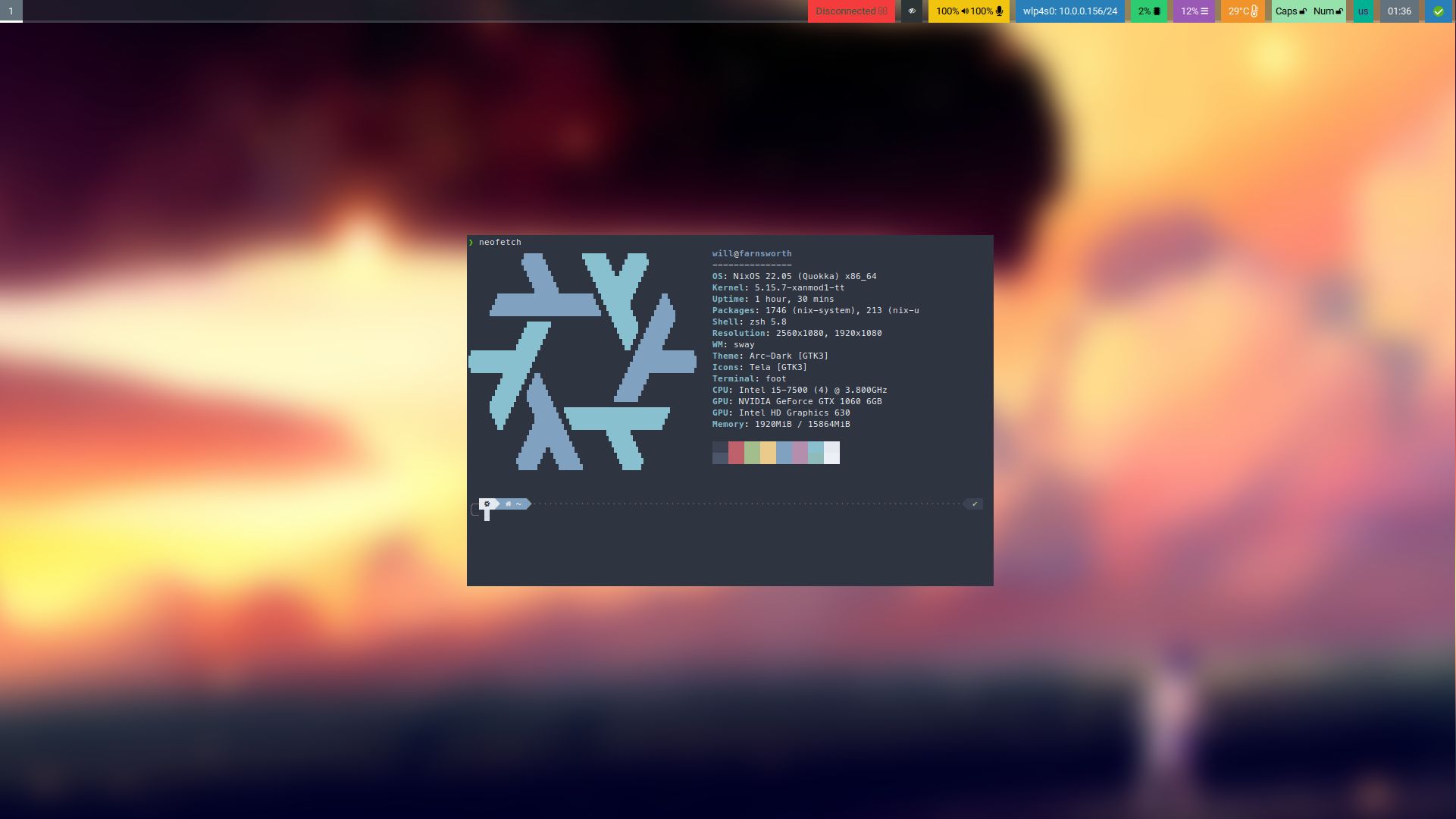swayblur

Basic i3ipc based script to blur an output's wallpaper when a client is present in it. Available via pypi, the AUR, or the NUR.
Installation
Stable Release
Swayblur is available in the AUR, NUR or from pypi:
pip install --user swayblurBuilding from Source
git clone https://github.com/willpower3309/swayblur
cd swayblur
pip install --user .Dependencies
python-i3ipc: build dependency for communicating with SwayImageMagick: used to generate the blurred wallpaper- `swww: used to set the wallpaper (https://github.com/WillPower3309/swayblur/issues/16)
Usage
*In order for the script to run as expected, your sway config should not set any wallpaper. Remove the `output bg PATH` line.**
swayblur does not spawn swww at launch. If spawning swayblur with a sway config via exec, ensure that exec swww init occurs before swayblur is executed!
swayblur [-h] [-b BLUR] [-a ANIMATE] [-c CONFIG-PATH] [-v] [--verbose]
| Option | Description |
|---|---|
-b, --blur |
blur strength (default: 20, min: 5, max: 100) |
-a, --animate |
animation duration (default: 1, min: 1, max: 20) |
-c, --config-path |
config path (default: $XDG_CONFIG_HOME/swayblur/config) |
--verbose |
prints additional information |
-v, --version |
show program's version number and exit |
-h, --help |
show the help message and exit |
Configuration
Swayblur reads a config file in ~/.config/swayblur/config.
Each section title follows the name [output <OUTPUT>] and configures the
given output.
The output name * will match any output not specified elsewhere in the file. To find your output names, consult your compositor's manual.
The key image must be present and its value must be your wallpaper.
The other keys are all available options for swww img, with leading dashes, and
without value for flags without arguments.
I personally use the below config, it's about as minimal as you can get:
[output *]
image=PATH_TO_YOUR_WALLPAPER
--transition-step=255